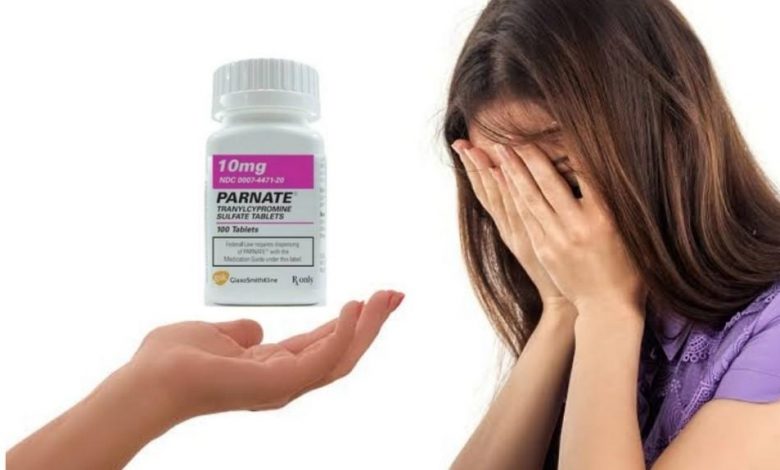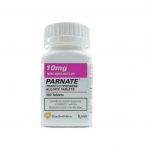How Effective is Parnate?

Parnate is a brand of tranylcypromine a monoamine oxidase inhibitor (MAOI) antidepressant that treats depression by restoring the balance of certain natural substances (neurotransmitters) in the brain.
Parnate can improve your mood and feelings of well-being. Usually, this medication is used in persons who have not responded to treatment with other drugs.
How should I take tranylcypromine?
Follow all directions on your prescription label and read all medication guides or instruction sheets. Your doctor may occasionally change your dose. Use the medicine exactly as directed. Your blood pressure will need to be checked often.
Parnate may be habit-forming. Do not take a larger dose, take it more often, or take it for a longer period of time than prescribed by your doctor. Call your doctor if you find that you want to take extra medication or you notice any other unusual changes in your behavior or mood.
Your doctor will probably start you on a low dose of Parnate and gradually increase your dose, not more often than once every 1-3 weeks. After your symptoms improve, your doctor will probably gradually decrease your dose of tranylcypromine.
Parnate controls the symptoms of depression but does not cure the condition. It may take 3 weeks or longer for you to feel the full benefit of tranylcypromine. Continue to take tranylcypromine even if you feel well.
You may need to stop using Parnate for a short time before any type of surgery or medical procedure. Tell any doctor who treats you that you take Parnate.
It may take a few weeks before you receive the full benefit of taking Parnate. Your doctor will determine how long to treat you with Parnate.
Do not stop using Parnate suddenly, or you could have unpleasant withdrawal symptoms. Ask your doctor how to safely stop using this medicine.
How effective is Parnate?
A comprehensive meta-analysis that compared the effects of Parnate and tricyclic antidepressants (TCAs) in the treatment of depression concluded that Parnate and TCAs have an equal antidepressant effect on depressed patients with mixed psychomotor symptoms and that Parnate might be superior to TCAs in depression with predominant psychomotor retardation.
What are the likely side effects of Parnate?
Parnate may cause side effects. Tell your doctor if any of these symptoms are severe or do not go away:
• blurred vision
• chills
• constipation
• decreased sexual ability
• diarrhea
• difficulty urinating
• drowsiness
• dry mouth
• hair loss
• loss of appetite
• muscle tightening or jerking
• numbness, burning, or tingling in the arms or legs
• rash
• ringing in the ears
• stomach pain
• uncontrollable shaking of any part of the body
• weakness
Some side effects can be serious. If you experience any of the following symptoms, call your doctor immediately:
• chest pain or tightness
• cold, clammy skin
• dizziness
• fever
• flu-like symptoms
• headache
• nausea
• neck stiffness or soreness
• pain in the upper right part of the stomach
• sensitivity to light
• slow, fast, or pounding heartbeat
• sweating
• swelling of arms, hands, feet, ankles, or lower legs
• tightening of the throat
• unusual bleeding or bruising
• widened pupils (black circles in the middle of the eyes)
• yellowing of the skin or eyes
Parnate may cause other side effects. Call your doctor if you have any unusual problems while you are taking this medication.
If you experience a serious side effect, you or your doctor may send a report to the Food and Drug Administration’s (FDA) MedWatch Adverse Event Reporting program online (http://www.fda.gov/Safety/MedWatch) or by phone (1-800-332-1088).





